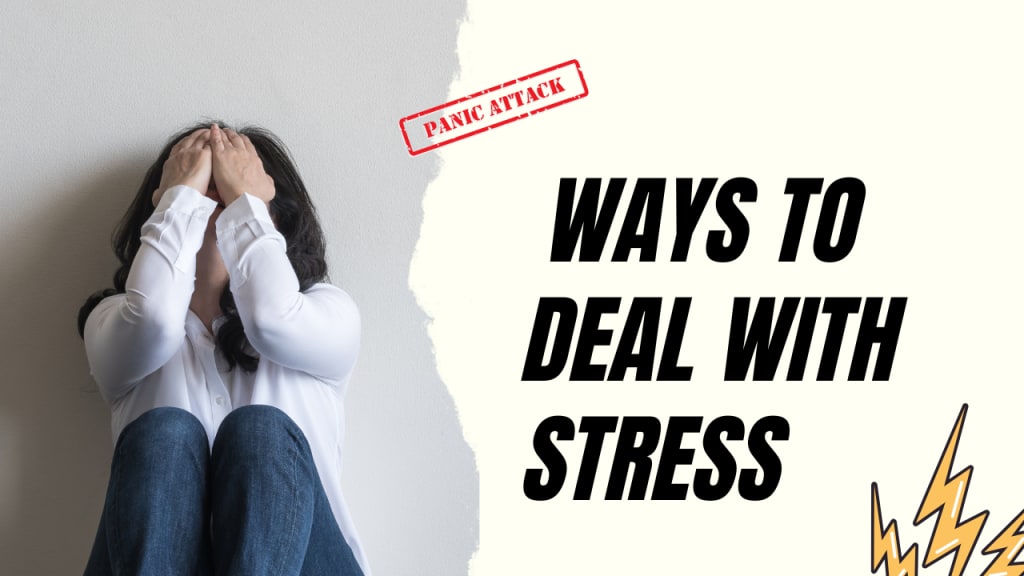The effects of stress on the body and mind, and how to manage it effectively
Body stress

Stress is a normal part of life that everyone experiences at some point. It is a reaction to a situation or event that causes the body to respond in a particular way. While some stress can be beneficial, chronic or prolonged stress can have a negative impact on both the body and the mind. In this article, we will explore the effects of stress on the body and mind, and discuss some effective ways to manage stress.
Effects of stress on the body
Stress triggers a "fight or flight" response in the body, releasing hormones such as adrenaline and cortisol. These hormones cause physical changes in the body, preparing it to either fight or run away from a perceived threat. While this response can be helpful in emergency situations, it can also have negative effects on the body over time.
Chronic stress can lead to a variety of physical symptoms, including:
Headaches: Stress can cause tension in the muscles of the neck and scalp, leading to headaches.
Digestive issues: Stress can cause digestive problems such as stomachaches, diarrhea, and constipation.
Increased blood pressure: Chronic stress can increase blood pressure, which can lead to heart disease.
Weakened immune system: Stress can weaken the immune system, making it harder for the body to fight off infections and illnesses.
Sleep problems: Stress can cause insomnia or difficulty falling asleep, which can lead to fatigue and other health problems.
Effects of stress on the mind
Stress can also have a significant impact on mental health. Chronic stress can lead to anxiety, depression, and other mental health issues. It can also impact cognitive function and memory, making it harder to concentrate and remember things.
Effective ways to manage stress
While it's impossible to eliminate stress completely, there are many effective ways to manage it. Here are some strategies that you can try:
Exercise: Regular exercise can help reduce stress and improve overall health. Exercise releases endorphins, which are natural mood boosters.
Relaxation techniques: Techniques such as deep breathing, meditation, and yoga can help reduce stress and promote relaxation.
Healthy diet: Eating a healthy, balanced diet can help reduce stress and improve overall health.
Adequate sleep: Getting enough sleep is essential for managing stress. Aim for 7-8 hours of sleep per night.
Social support: Talking to friends and family can help reduce stress and improve overall well-being.
Time management: Effective time management can help reduce stress by allowing you to prioritize tasks and manage your workload.
Conclusion
Stress is a normal part of life, but chronic or prolonged stress can have negative effects on both the body and the mind. By implementing effective stress management strategies, you can reduce the impact of stress on your health and well-being. Remember to prioritize self-care and seek support when needed. With the right tools and strategies, you can effectively manage stress and live a healthier, happier life.
In addition to the strategies mentioned above, there are several other ways to effectively manage stress. These include:
Mindfulness: Mindfulness is the practice of staying present in the moment and non-judgmentally observing your thoughts and emotions. It can help reduce stress and improve overall well-being.
Hobbies: Engaging in activities that you enjoy can help reduce stress and improve your mood. Whether it's reading, gardening, or painting, finding time for hobbies can be an effective stress-management strategy.
Therapy: If you are struggling with chronic stress or mental health issues, talking to a therapist can be helpful. A therapist can provide tools and strategies for managing stress and improving overall well-being.
Time in nature: Spending time in nature has been shown to reduce stress and improve mental health. Whether it's taking a walk in the park or hiking in the mountains, spending time in nature can be a powerful stress-management tool.
Laughter: Laughter is a powerful stress-reliever. Watching a comedy or spending time with friends who make you laugh can help reduce stress and improve overall well-being.
In conclusion, stress is a normal part of life, but chronic or prolonged stress can have negative effects on both the body and the mind. By implementing effective stress-management strategies, such as exercise, relaxation techniques, and mindfulness, you can reduce the impact of stress on your health and well-being. Remember to prioritize self-care and seek support when needed. With the right tools and strategies, you can effectively manage stress and live a healthier, happier life.





Comments
There are no comments for this story
Be the first to respond and start the conversation.